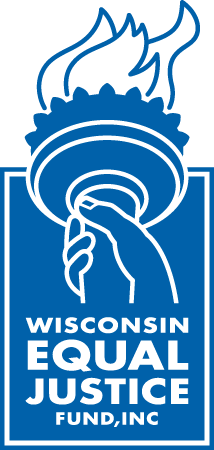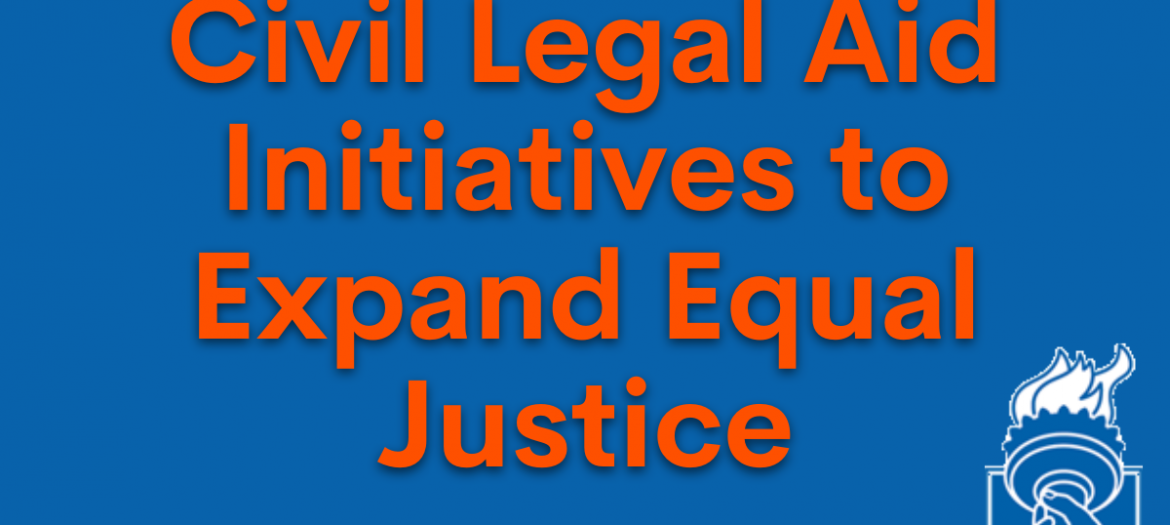Several states across the country have implemented new ways of improving access to justice for all. These additions to traditional in-office legal aid services enhance the ability of anyone to seek out justice. As a supporter of equal justice in Wisconsin, we thought you might like to learn more about these projects.
Legal Help Websites
By meeting people where they are, interactive legal help websites provide guidance to those in need by offering self-help tools including court forms, ways to get lawyer assistance in their location, and information about courts and agencies. A few great examples come from our neighbors – Michigan Legal Help, LawHelpMN.org, and Illinois Legal Aid Online. You can search for certain legal topics or scan the directory by topic to find more information about the topic and related forms. You can also look for a lawyer to help you with your legal concern. I think the most helpful feature of these websites is the ability to be walked through a step-by-step questionnaire to be guided to the proper resources for that individual.
The Legal Services Corporation (LSC), which is the federal organization that awards grants to legal services providers including Judicare Legal Aid and Legal Action of Wisconsin, began its Technology Initiative Grants (TIG) program in 2000. I am happy to report that a group from Wisconsin, which is led by Judicare Legal Aid and includes WEJF Executive Director Aly Lynch, recently received a TIG for $197,041 to provide funding for a new legal help website for Wisconsinites in need of assistance.
Legal Kiosks
Legal kiosks are computers, usually placed in a variety of community locations, that provide access to legal services to individuals without access to the internet or technology. The kiosks can be used to apply for civil legal aid services, access legal resources, and, in some cases, attend online meetings and remote court hearings in privacy. Minnesota’s Legal Kiosk Project is one example that offers over 250 kiosks across the state. North Dakota has a few kiosks in Fargo, the Western New England School of Law has a kiosk project in Springfield, MA, and Ottawa County, Michigan has legal kiosks west of Grant Rapids.
Implementation of a legal kiosks program is a priority of the Wisconsin Access to Justice Commission and something we are likely to see in Wisconsin in the coming years.
Justice Buses
Sometimes circumstances mean that people cannot access the internet from home and they cannot find transportation to the nearest legal aid office. A few places have implemented justice bus programs, which send legal aid lawyers into the residential areas where people in need of help live places like Legal Aid of the Bluegrass, western New York’s Neighborhood Legal Services, Legal Services of Northwest Minnesota, and Mid-Minnesota Legal Aid, so people don’t have to find transportation to the service provider’s location. This is especially useful in rural areas. The buses are often retrofitted vans containing a small mobile office with a computer, copier, printer, fact sheets, and other informational documents and provide regular outreach rotations and schedules. The service providers often work with domestic violence shelters and city governments to get the word out about the Justice Bus service offerings.
In Wisconsin, the Mobile Legal Clinic serves the Milwaukee area and is a project run by the Marquette Law School and the Milwaukee Bar Association. Judicare Legal Aid offers a Tribal Wills Caravan with the help of law students from UW-Madison and Columbia University.


